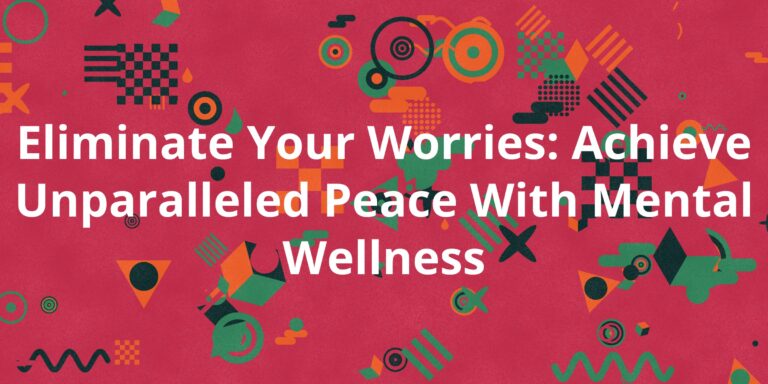The Power of Mindfulness: Transform Your Life with These True Facts About Mental Wellness
In today’s fast-paced world, it can be easy to feel overwhelmed by the constant barrage of information and demands on our attention. However, taking a moment to focus on our mental wellness and practicing mindfulness can have a profound impact on our overall health and happiness. In this article, we will explore the true facts about the power of mindfulness and how it can transform your life.
What is Mindfulness?
Mindfulness is the practice of being fully present in the moment, without judgment or distraction. It involves paying attention to our thoughts, feelings, and sensations as they arise, without getting caught up in them or trying to change them. By cultivating mindfulness, we can develop a greater sense of self-awareness and learn to respond to life’s challenges with more ease and grace.
The Benefits of Mindfulness
There are numerous benefits associated with the practice of mindfulness, both for our mental and physical health. Some of these benefits include:
1. Reduced Stress and Anxiety: Studies have shown that mindfulness can help to reduce levels of cortisol, the hormone responsible for stress, in the body. By practicing mindfulness, we can learn to manage our stress and anxiety more effectively, leading to a calmer and more peaceful state of mind.
2. Improved Mood: Mindfulness has been shown to increase activity in the prefrontal cortex, the part of the brain responsible for decision-making and emotional regulation. This can lead to an improvement in mood and a greater sense of well-being.
3. Enhanced Focus and Concentration: By training our minds to focus on the present moment, we can improve our ability to concentrate and stay focused on tasks. This can be particularly beneficial in a work or academic setting, where distractions are common.
4. Increased Self-Awareness: Mindfulness can help us to develop a greater sense of self-awareness, allowing us to better understand our own thoughts and feelings. This can lead to more effective communication and healthier relationships with others.
5. Improved Physical Health: The practice of mindfulness has been linked to a range of physical health benefits, including lower blood pressure, improved immune function, and reduced inflammation.
How to Practice Mindfulness
There are many different ways to practice mindfulness, and the method that works best for you may depend on your individual needs and preferences. Some common techniques include:
1. Meditation: Meditation is one of the most well-known practices associated with mindfulness. It involves sitting or lying down in a comfortable position and focusing on your breath, while allowing thoughts and distractions to come and go without judgment.
2. Yoga or Tai Chi: Both yoga and tai chi involve mindful movement and can be a great way to cultivate mindfulness in your daily life.
3. Gratitude Practice: Taking a few moments each day to reflect on the things you are grateful for can help to shift your focus away from negative thoughts and towards a more positive outlook.
4. Mindful Eating: Paying attention to the sensations of eating, such as the taste, texture, and smell of your food, can help to cultivate mindfulness in your daily life.
5. Body Scan: Taking a few moments each day to scan your body for any areas of tension or discomfort can help you to become more attuned to your physical sensations and promote relaxation.
Conclusion
The power of mindfulness is undeniable, and by incorporating mindful practices into your daily life,



